FOCUS FUEL POVERTY
Why those in nontraditional homes missed out on hundreds of pounds
Gypsies, Travellers, Roma and Nomadic communities are missing out on vital energy bill support



Why those in nontraditional homes missed out on hundreds of pounds
Gypsies, Travellers, Roma and Nomadic communities are missing out on vital energy bill support


Since our last magazine, three months ago, we at National Energy Action - like our stakeholders - have undertaken a huge amount of work. As head of research, I’m very proud to present two big reports that were released in the last few months. On pages 12 and 13 read our article on our work with Affordable Warmth Solutions (AWS) and the evaluation of their Warm Homes Fund programme. The programme took place on a huge scale and as our evaluation found, saved households an average of £900 on their energy bills. The accompanying Blueprint we hope will be a helpful guide for the design of future fuel poverty programmes..
We also published our Which? supported Plugged In research. Go to pages 10 and 11 to see how those who don’t live in traditional bricks and mortar housing have
03: Project in Focus
Warmth on prescription
been excluded from much-needed financial support like the Energy Bills Support Scheme. This issue of Focus also includes details of two big events in our calendar including Fuel Poverty Awareness day on 30 November. The other is National Energy Action’s annual conference on 4 to 6 December. Find out how to secure early bird tickets on page 4. We also have updates on projects including warmth on prescription on page 3 and our fundraising events on page 15 as well as your updates on pages 6 to 8. Please send your articles for the next issue, due out in December, to focus@nea.org.uk.
Helen Stockton Head of Research National Energy Action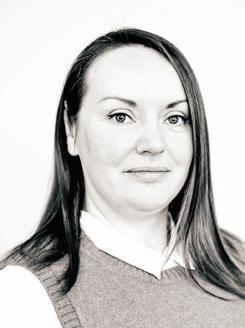
04: Events in Focus
Fuel Poverty Awareness Day and the annual conference
05: Policy in Focus
Making net zero affordable
06: Members in Focus
Updates from our members
08: Members in Focus
The GDNs’ VCMA showcase
09: People in Focus
Helping Jane get £870
10: Research in Focus
Gypsy, Roma, Travellers and nomadic communities need more energy bill support
12: Research in Focus
How AWS saved households £900 on their energy bills

14: Training in Focus Learning opportunities
15: Fundraising in Focus

What’s on About Fuel Poverty Focus
Fuel Poverty Focus is the quarterly magazine, produced by National Energy Action, for its members. If you have content ideas for next issue and beyond please email focus@nea.org.uk
Newcastle Head Office West One, Forth Banks, Newcastle upon Tyne, NE1 3PA

National Energy Action recently partnered up with Energy Systems Catapult to deliver a new pilot project – Warm Home Prescription scheme, in the Tees Valley, to help people with chronic health conditions heat their homes to safe temperatures throughout winter 2022-23. The scheme was developed to support those whose conditions are made worse by living in cold homes, to reduce harmful health complications and relieve pressure on the NHS. It works by social prescribers referring eligible patients into the service via the NHS to National Energy Action. Our expert advisers then make contact to get relevant information and to
provide the most effective, relevant energy advice and support. From this, we’re able to ‘prescribe’ a warm home and credit the patients’ gas or electricity account to cover the cost of heating their property’s living area to 21°C by day and their bedroom to 18°C by night, up to 31 March 2023.
During the pilot, we provided 292 Warm Home Prescriptions to patients in the Tees Valley area. Across all areas in England and Scotland, 1,000 people have been supported. As part of the scheme, we delivered home visits where required and arranged for the repair or fitting of heating controls, so patients could effectively control the temperature in their
property. Participating patients were also sent thermometers and temperature recorders to help monitor their home. Energy Systems Catapult is now working with Sheffield Hallam University to carry out an evaluation of the 2022-23 Warm Home Prescription pilot, with findings due to be available later in 2023. Our chief executive Adam Scorer is also part of the Warm Home Prescription task force, chaired by Amber Rudd (former Secretary of State for Energy and Climate Change). The task force aims to generate awareness and support of the scheme and how it can be replicated at scale to provide support to people with chronic health conditions and who are vulnerable to the cold. If you’re interested in learning more go to: https://es.catapult.org.uk/ project/warm-homeprescription/

Across England and Scotland, 1,000 people have been supportedWarmth by Prescripition covers the cost of heating their property’s main living area to healthy temperatures
Join us in Leicester for our fuel poverty conference - book before 30 September to save 10% with our early bird rate

Early bird tickets are on sale until 30 September for National Energy Action’s annual conference.
Taking place on 4 to 6 December in Leicester Tigers’ Stadium, we’re bringing together stakeholders from all sectors with an interest in fuel poverty and energy efficiency to discuss and debate the best ways to address the current energy crisis, two years in.

There will be plenary sessions, breakouts, discussions and Q&A as well as an exhibition and networking opportunities including an opening night buffet and an informal dinner on the Tuesday evening.
As the national fuel poverty charity, at the heart of the event, lies the living experience of those in fuel poverty. We will hear from the people still being affected, we will also welcome the Minister, Amanda Solloway MP, in person, to address our audience in a keynote speech. The conference will have a UK-wide focus and will include the launch of our UK Fuel Poverty Monitor 2022-23. We will harness insights from all areas: academia and
research, policy development and practical delivery of project work in the communities, as well as engaging with new stakeholders and enhance partnership work throughout the sector. The programme will focus on where we are with the energy crisis and discuss what the priorities will be for this coming winter and beyond
We have many colleagues working and volunteering for small community-based charities and organisations who struggle to afford to attend conference. Their attendance is not only beneficial to their job roles but it also enhances the inclusivity, diversity and mix of expertise that enables all of our delegates to come away from conference with really useful and engaging learnings. We need delegates from all sectors to come together to work to eradicate fuel poverty. If your organisation could pay or part-pay for someone from a smaller charity or not-for-profit please contact brian.hart@ nea.org.uk.
Go to www.nea.org.uk/ annual-conference-2023/.
National Energy Action’s Fuel Poverty Awareness Day will be on Thursday 30 November - put it in your diaries
National Energy Action (NEA) will hold this year’s Fuel Poverty Awareness Day (FPAD) on Thursday 30 November. The day our partners and stakeholders speak to their clients and followers about the causes and solutions to fuel poverty. It is also an invaluable opportunity to speak about the work that you’ve done to ensure that more people can live in a warm and safe home – and in the current climate, this has not been easy and should be recognised. Every year we see more and more support for FPAD and we’re so grateful. With no end to the energy crisis in sight, we need your help more than ever. Last year, we saw our stakeholders respond amazingly to the crisis. The hashtag
● Hold a community event or an advice session
● Write to your MP calling for more support for households in fuel poverty.
6.3M UK households are now in fuel poverty
National Energy Action will be creating assets for you to use on your social media platforms on the day. These are in development, but any suggestions are also welcome. Please ask your colleagues who manage your social media to support us on the day. If you are tweeting please include @NEA_ UKCharity, @NEA_ NIreland for Northern Ireland and @NEA_ Cymru for Wales. Our other social media handles are:
● Facebook – https://www. facebook.com/
Nationalenergyaction
#FuelPovertyAwarenessDay was seen by over 14 million accounts on Twitter. We received notable mentions from Sadiq Khan and Caroline Lucas, just to name a few. There are many ways you can support on the day:

● Post your support on social media on the day
● LinkedIn – https://www. linkedin.com/company/ national-energy-action
● Instagram – https://www. instagram.com/nea_ukcharity/
● Threads - nea_ukcharity@ threads.net
For any queries regarding Fuel Poverty Awareness day, please contact michael. potter@nea.org.uk.
measure, permanently reducing energy demand for individuals. These works remain expensive and unaffordable for many, so we cannot expect low-income households to pay the price for them
There has been a lot of talk recently about what to do next about net zero. In the Uxbridge by-election we saw a result that many say was driven by concerns over net zero, particularly about whether the Ultra Low Emissions Zone (ULEZ) expansion is affordable for residents. And while transport is not a key topic for National Energy Action, this tension translates over to fuel poverty. Polling suggests that net zero remains overwhelmingly popular for British voters across the country, but it is particularly reliant on a perceived fairness, and an affordable outcome. It is
important that there is focus on policies that can help low-income households financially, as well as reducing carbon emissions.
The good news? We know how to do this. One way is to ensure that low-income households live in energy efficient homes. Increasing levels of insulation is fundamental in meeting net zero, and it is also an extremely effective cost-of-living

– we need government grants. Alongside energy efficiency, we must make sure that the heating systems of the future mean savings for households, not an extra cost to bear. It is clear that decarbonisation will mean that many heat pumps are installed in homes. This can be made fair and affordable through reducing electricity costs, but it should not be done by removing some elements of the electricity bill and adding them to the gas bill. This would lead to unfair outcomes for low-income gas users that cannot afford electrical heating. For rented accommodation, there is a particular need for action, with hundreds of thousands of homes in the worst energy efficiency bands. We need landlords to meet decent minimum standards of energy efficiency. But alongside this, for perceived fairness, we need incentives to help landlords and housing associations to get their houses in order.

National Energy Action’s head of policy and public affairs, Matt Copeland on why fuel poor households should be at the heart of environmental policies...
been more important
Insulation is effective but remains expensive for many
Residents in underperforming homes must run their heating for over five hours longer to achieve the same level of comfort.
By analysing over 8 billion data points annually, Switchee’s team of data scientists have developed a ground-breaking metric called Time to Heat (TTH) to effectively measure the performance of a property and its heating system.
By using Switchee data in this way, landlords can more accurately assess the true energy efficiency of their housing stock Time to Heat measures the time it takes for a property to gain 1°C of internal air temperature when the heating is turned on. It is a measure of the actual thermal performance of the property.
TTH indicates the effectiveness of the heating system and suitability to the property in which it is installed, based on actual measured data. Switchee data reveals a significant performance gap between properties with high, medium, and low TTH.
Some properties heat up rapidly, while others take hours to achieve the same temperature increase. On average, the worst-performing 20% of properties have a high TTH taking more than 2 hours 30 minutes to gain 1°C. In contrast, the bestperforming 25% of properties achieve this in less than an hour.
Such insights are invaluable for social housing providers, allowing them to target their resources toward retrofit measures for homes most in need.
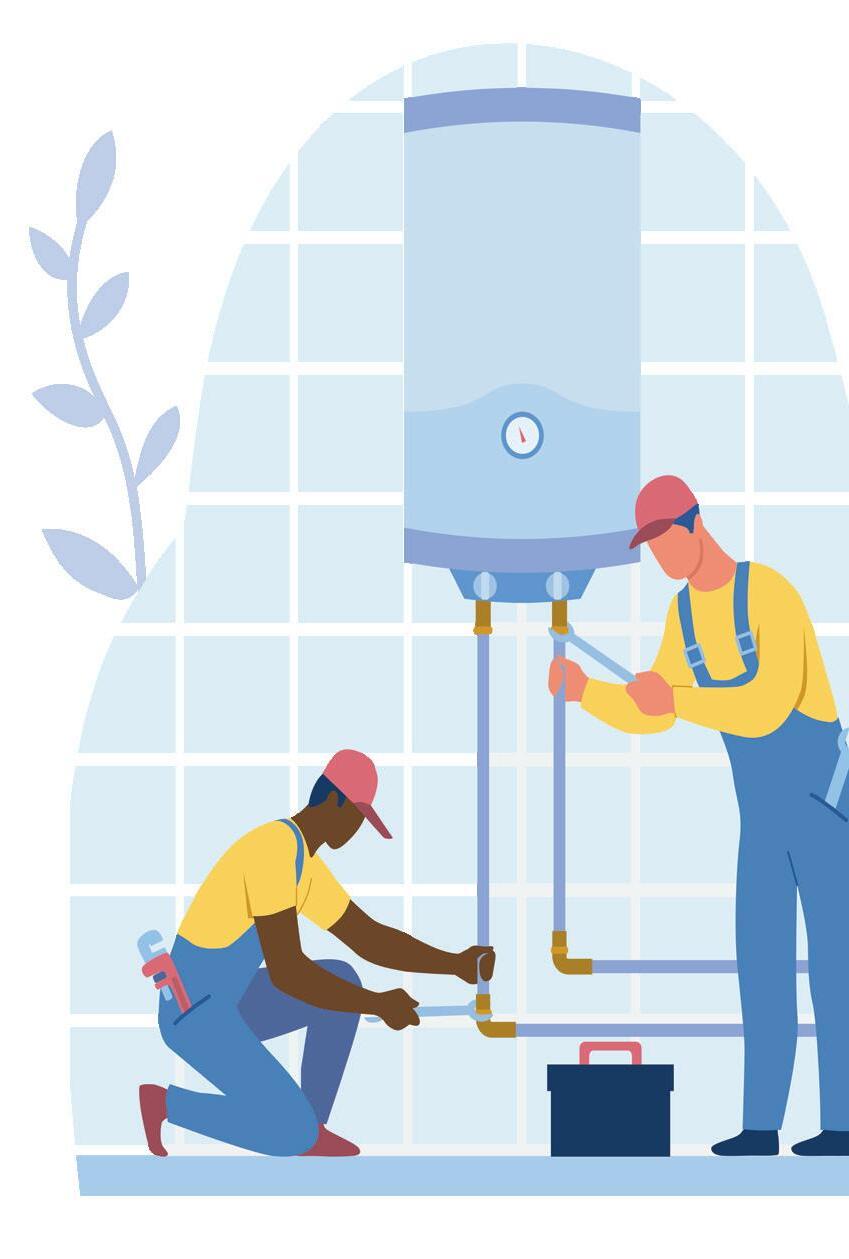
Underperforming properties with a high TTH result in residents enduring colder temperatures for extended periods. This not only affects their well-being but also damages the property, leading to issues like damp, and mould.
These conditions pose health risks
to residents and can accelerate the deterioration of the property.
According to Ben Morris, data lead at Switchee, the cost of heating for properties with high TTH values is, on average, £4,070* more per year compared to those with low TTH values.
This staggering cost difference highlights the urgency of prioritising and implementing retrofit measures to improve energy efficiency and reduce heating bills for residents.
By adopting a data-driven approach, social housing providers can make significant strides in improving the quality of life for their residents and maintaining their housing stock. Contact Switchee for more information on Time to Heat and other insights accessible via the Switchee dashboard and be slightly ahead. ‘Thank you so much once again it’s a massive help,’ said one household support fund recipient.
Members of National Energy Action’s Business Supporters Group can access regular meet-ups

In August, we ran a policy spotlight session with our Business Supporters Group (BSG), to give updates on the policy context across our three advocacy priorities, as well as National Energy Action’s plans across these priorities in the coming quarter.
We also discussed energy efficiency schemes in more detail, and the actions that National Energy Action and its supporters could take to improve schemes, so we can help more fuel poor households in a more meaningful way. Thank you to everyone who attended. Find out more: www.nea.org.uk/work-with-us/membership/ bsg.
An energy advice project in Northumberland has been awarded another 12 months of funding through the Energy Industry Voluntary Redress Scheme (www.energyredress.org.uk), due to the project’s success.
The funding allows Community Action Northumberland (CAN) to support energy consumers in hard-to-reach rural Northumberland who are disadvantaged through remote locations with no connection to the gas grid and, in the case of 356 households, the electricity grid.
The project, called Energy Advice Rural Northumberland (EARN) is delivered through two Community Energy Advisers, specialising in helping off-gas households with the best renewable energy options open to them, and efficiency measures.
20 Electricity North West apprecntices cycled 400km to raise funds
Over the last few months, National Energy Action has seen many incredible fundraising stories, including one from a group of 20 Electricity North West apprentices who cycled over 400km in aid of National Energy Action and The Teenage Cancer Trust.
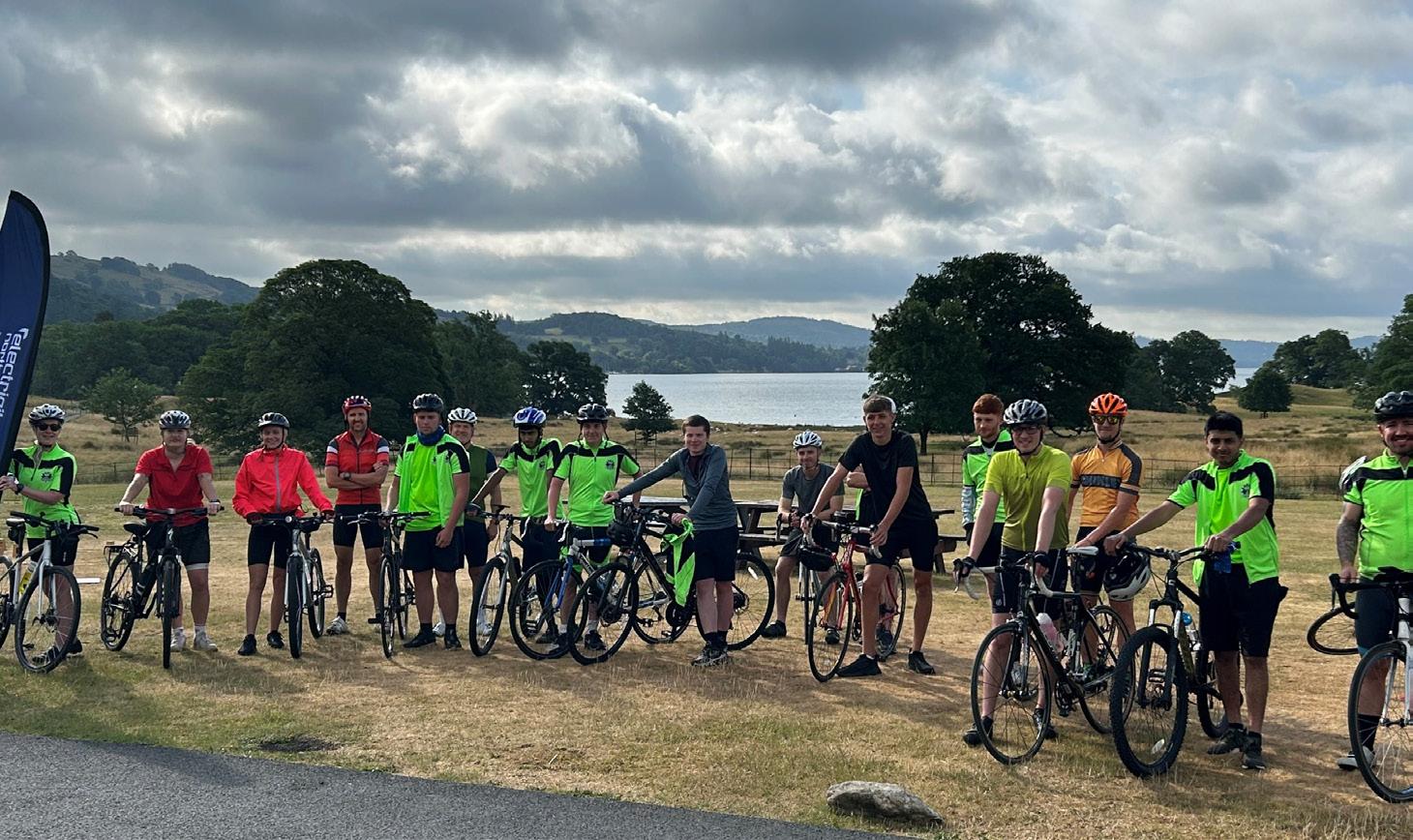
The apprentices – including those from IT, OHL, jointers, fitters, civil engineers and electrical engineers –took on the five-day feat visiting the majority of the power network operator’s depots and offices from Workington to Salford.
After extreme amounts of sun cream had been applied, the 20 riders set off for Workington through the quiet back roads of north Cumbria and into a really strong headwind, before arriving at the depot and onto the accommodation for the night.
Although a shorter day, the second day started with torrential downpours for the first few hours and the riders set off with great enthusiasm towards Keswick. With what felt like waves of water coming off the cars and vans passing, the group proceeded cautiously and arrived at the bottom of the hill in Keswick ready to climb up to Castle Rigg Stone Circle – an extreme, mile-long climb.
The spirits at the top were great to see especially after that climb, despite everyone being soaked through! The rain soon lifted
and the group proceeded to head to Thirlmere for lunch and down to Grasmere for an overnight stay.
Moving on to day three and after taking on an epic 63 miles, the group all enjoyed a well-deserved meal in a local restaurant with plenty of conversations and laughs demonstrating how relationships had grown over the last few days.
The final day saw an early start and a quick ride down to Stockport, before the last
push into Manchester and Frederick Road. On arrival at Salford, the group were welcomed by some parents who had come to collect them and they finally managed to get off their bikes for the last time!
A huge well done to the team for your amazing effort and for your support.
If your team is interested in taking on a challenge for National Energy Action, please contact Alice on alice.dalgleish@nea.org.uk to get started.
A website containing resources also backs up the one-to-one advice.
Christine Nicholls, Community Development Officer at CAN said:
“We know residents frequently struggle to access existing services and need additional support from trusted communitybased sources. The incidence of fuel poverty is huge with low incomes, poor dwelling construction and cost of heating oil. The project was designed to build on our existing, trusted network of communitycentred Warm Hubs as the focus for support and advice for the long-term.
“To date, we’ve exceeded our project targets, having supported just over 3,000
households with a mixture of light-touch advice at events, home visits, face-to-face appointments at community venues and telephone support. We have also provided over 4,000 small energy-saving measures
to over 700 households. We look forward to continuing our work, especially over the coming winter with many facing continued high energy bills.”
CAN has a long-standing commitment to reducing fuel poverty and increasing household energy efficiency in the rural communities of Northumberland. Its award-winning ‘Warm Hubs’ programme was the first of its kind eight years ago. It has been highlighted as good practice by both Ofgem and the Prince’s Countryside Fund (Village Survival Guide, 2019). It provides a network of warm, energy-efficient venues acting as focal points for energy support and advice and a small network of volunteer Community Energy Agents.
To find out more about the project visit: http://ca-north.org.uk/supportingindividuals/energy-advice.

Lendology say local councils have a crucial role in carbon reduction targets
This year’s Vulnerability and Carbon Monoxide Allowance (VCMA) showcase event, run by Cadent with Brandwalk and National Energy Action.
The 20 July event allowed Gas Distribution Networks (GDNs) and partner organisations to show the incredible work they’ve done using the VCMA funding. The VCMA is a five-year monetary fund from Ofgem for GDNs that supports projects focused on vulnerability in the energy market and carbon monoxide (CO) safety initiatives.
The role of GDNs
Adam Scorer, Chief Executive at National Energy Action, delivered the keynote speech, highlighting just how important the VCMA is. Amid the energy crisis, with households struggling and much of the government energy bill support having fallen away, Adam said the VCMA funding is essential. It’s not just the scale of the funding available, but the long-term nature of it, meaning that GDNs and partners can plan for years to come. GDNs also have local and regional ties to create effective local partnerships better able to target vulnerable households.
In the first set of breakout sessions, we saw the amazing collaborative projects that
GDNs have been doing.
GDNs discussed how they are working to raise awareness of the dangers of CO, including SGN’s campaign, Game Over, aimed at 16 to 25 year olds who have recently moved out of their parents’ house.

Northern Gas Networks (NGN) spoke about their project with Citizens Advice to embed CO awareness into and increase capacity of the Energy Advice Programme. Edward Allard, Social Programmes Manager at Cadent, spoke about a project with SGN to support our Warm and Safe Homes (WASH) helpline and The Wise Group’s Home Energy Advice Team (HEAT) initiatives. Interactive breakout session on
As well as the collaborative projects, GDNs also discussed their individual projects during interactive breakout sessions. Cadent discussed its Healthy Homes Solutions Pilot 2022-23 and how it used data to identify where its most in need customers are. NGN showcased the Warm Hubs Toolkit, enabling the Warm Hubs model (created by Community Action Northumberland and supported by NGN) to be rolled out nationwide. SGN discussed the Safe and Warm Community Scheme with Centre for Sustainable Energy, a project to target small local organisations
who are better able to engage with vulnerable customers. Wales and West Utilities spoke about a project with Welsh Kidney Network to target households with kidney conditions, who can be more vulnerable to cold and damp homes.
Kevin Tse, Ofgem head of price control monitoring and response, gave the regulator’s perspective on the effectiveness of VCMA funding. He said he was impressed with the projects he’d seen and that the increased VCMA funding would enable even more work. During the Q&A session at the end of the day, Adam said the opportunity of the VCMA is how GDNs can be the magnetic core of their region that enables other organisations to tackle the stubborn issues – people who are not presenting themselves as vulnerable but who are in dire need. Mark Belmega, Cadent’s Director of Sustainability and Social Purpose ended the day by highlighting some key stats for the VCMA showcase, including that 89 questions were asked and 182 people took part in the live polls through the day. It was an inspiring event showing the best of the industry. Thanks so much to everyone who spoke, chaired or helped in the background and thank you to everyone who attended.

At National Energy Action, we take care of referrals from a range of organisations to support people in need of energy advice.
Through referrals, we are able to reach more people who are experiencing fuel poverty and provide specialist support to help them stay warm and safe at home. Recently, we got in touch with Jane*, who was referred to us by her Housing Association’s Mental Health Support Team, following several years of struggling to repair her faulty meter and accumulating debt on her account. At 53 years old, Jane was living with various health conditions that hindered her ability to consistently engage with her energy supplier. Jane was also rationing her fuel usage, which made the prospect of being in debt to her supplier only heighten her anxiety. After a conversation with one of our energy advisers, they discovered Jane’s payment plan had not been correctly established,
and no payments had been made toward her energy usage. Over a span of six months dedicated to investigating Jane’s situation, she was also diagnosed with a lung condition that had worsened due to the inability to adequately heat her home. There were seven unsuccessful attempts to install a smart meter and numerous exchanges between Jane and her energy supplier.
Jane expressed feeling ‘completely overwhelmed’ by the situation - to the point where she was afraid to use her lights at night, resorting to a torch instead. National Energy Action’s intervention as an intermediary between Jane and her supplier proved instrumental in alleviating Jane’s anxiety. After the successful installation of the smart meter, and several months of discussions with the supplier, Jane received financial compensation of £75
from her energy provider. National Energy Action then contacted Jane’s energy provider again, advocating for increased compensation due to the arduous process of fixing the smart meter and having her condition exacerbated by the lack of proper heating. As a result, Jane was granted a credit adjustment of £772.46, alongside an additional £100 as a gesture of goodwill for the inconvenience caused.
Jane had always considered herself a low energy user. However, following the support from our energy adviser, Jane now has an affordable payment plan. She said she could finally heat her home and experience comfort without having to ration her fuel. Thanks to the assistance from our winter support fund, we were also able to provide Jane with warm clothing and blankets too. Jane said: ‘I couldn’t have resolved this without your help.’
After a payment plan was set up incorrectly Jane was hundreds of pounds in debt and using a torch for light. Here’s how National Energy Action helped her...
Thinking she was in debt, Jane was afraid to use her lights
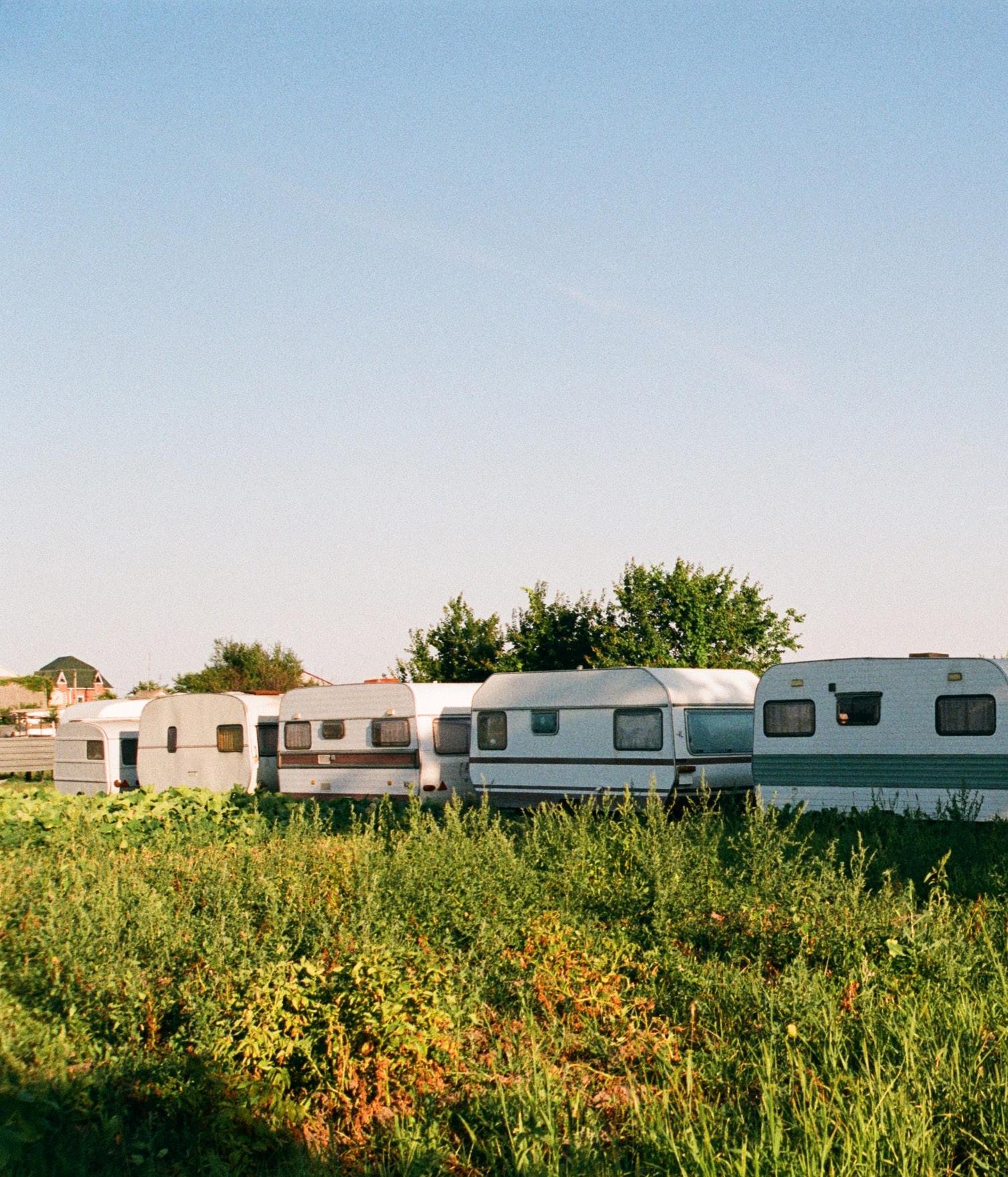
Celeste lives alone on a boat she bought just over five years ago. She does not have a mooring licence and is classed as a continuous cruiser, so Celeste must move her boat every two weeks.
Because of this status, she was not eligible for the Energy Bills Support Scheme, the £400 government grant to help with the cost of energy bills across winter 2022 and spring 2023. She has tried many times to access the alternative scheme for those using
coal, wood, and gas bottles, but has been asked for proof of purchase of fuels and other paperwork she didn’t keep because she did not know they would be needed down the line. This is just one of many issues facing Gypsies, Travellers, Roma, and other people who identify as belonging
to a Nomadic Community (GTRNCs), when it comes to energy bills.
At National Energy Action (NEA), we represent those at the sharp end of the energy crisis. For the most part, they are on a low income and live in a flat or house. But for those not living in bricks and mortar, like Celeste, the energy crisis has been
It’s clear that many GTRNCs are struggling and face additional challenges in keeping warm and well.For more than 70% of the surveyed GTRNC households, energy/fuel is unaffordable, with 42% able to ‘just about manage’, 23% finding costs ‘quite difficult’ and 9% finding costs ‘very difficult’. Four out of five (80%) households were turning the heating off to save money, with more than half (51%) doing this ‘all of the time’ or ‘some of the time’. More than half (61%) reported borrowing money to pay for energy/fuel in the last 12 months, with nearly a third (29%) reporting that they have needed to do this a lot.
experienced in unique ways.
GTRNCs as a consumer group is regarded as overlooked, under-served by policy, and under-researched. This is why NEA undertook research into how this group has experienced the energy crisis.
This research, which included a Call for Evidence, interviews, and a survey of 290 households, was conducted during (what we hope was) the height of the cost-ofliving and energy price crises in 2022-23. Conducted by NEA with support from the Which? Fund, and in partnership with Friends, Families and Travellers, the research asked these communities how they are managing their energy bills, as well as barriers to support and advice during the energy crisis.
GTRNC communities are not a homogenised group living and experiencing energy and related vulnerability in the same way, but there are some common issues experienced, including access to safe, affordable, and reliable energy and fuel.
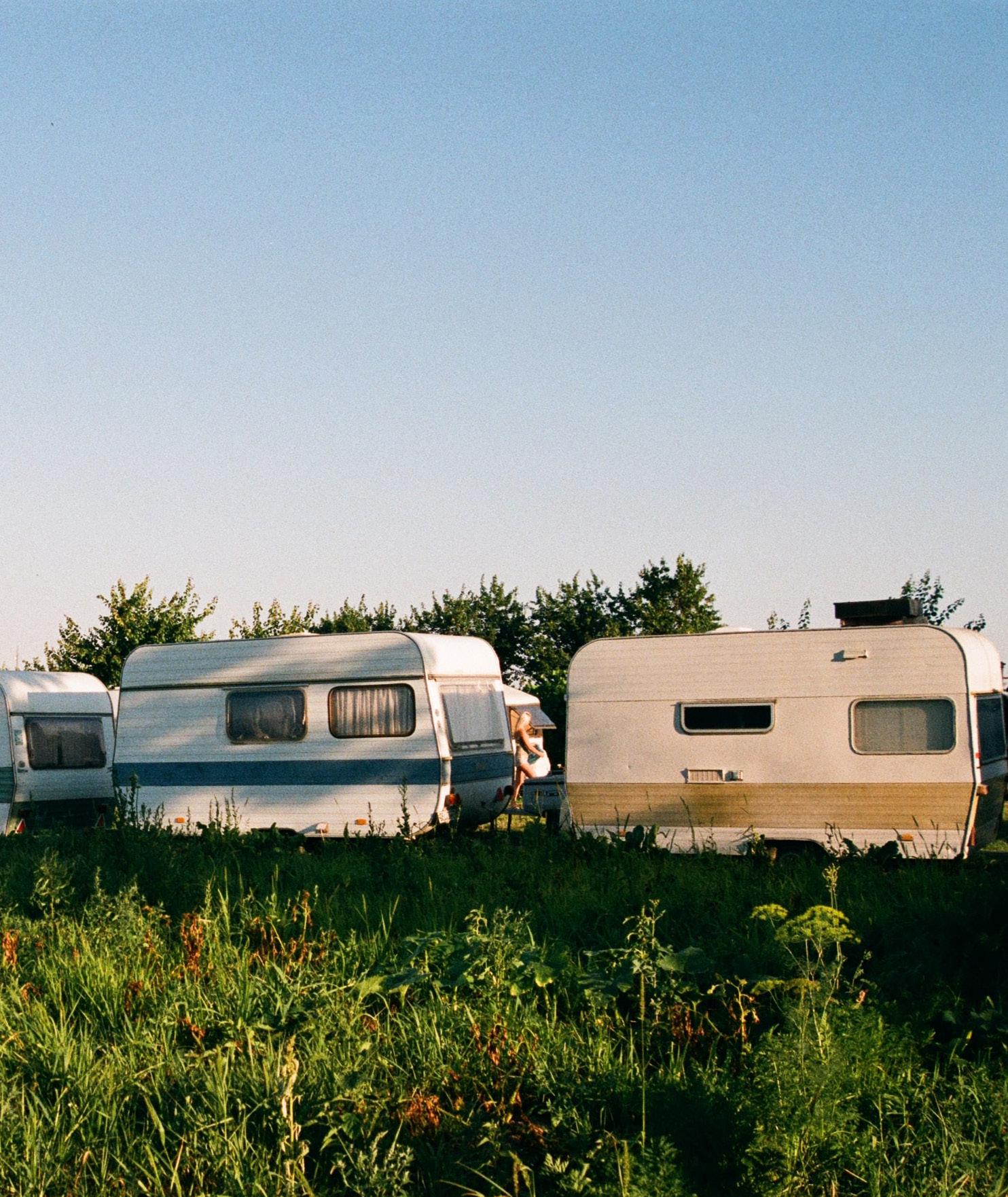
Affordability is a significant issue GTRNCs struggling with the cost of energy have also found it difficult to access vital energy bills support, such as the Energy Bills Support Scheme and the Energy Price Guarantee (capping the cost of a typical annual energy bill).
Nearly half (43%) GTRNCs surveyed have not received any government support through the energy crisis.
Common problems GTRNCs experience include difficulties with access to energy via less common
arrangements, with little-to-no choice over supplier and fuel type.
This leads to discrimination, limited consumer protections, disproportionately more expensive bills, and little choice over cleaner and/or cheaper sources of energy.
Other barriers to accessing support include digital exclusion and language and literacy difficulties. At a time when the energy crisis has eroded household incomes, and the UK is heading towards another tough winter with limited support from government, it’s vital to examine how the most marginalised groups can be best included and supported.
See National Energy Action’s website for the full report: www. nea.org.uk/researchpolicy/ gypsies-travellers-romanomadic-communities.

Affordable Warmth Solutions’ (AWS) Warm Homes Fund (WHF) has helped tens of thousands of
Gillian’s home had no central heating system. Living in cold, damp conditions, she developed pneumonia.
Thankfully, Gillian was able to get much-needed help from one of Great Britain’s largest fuel poverty programmes, and was able to have a new gas central heating system installed while she was in hospital recovering. As well as making a huge difference to Gillian, Affordable Warmth Solutions’ (AWS) Warm Homes Fund (WHF) has helped tens of thousands of other households, new research shows. Conducted by a consortium made up of Newcastle University, National Energy Action (NEA), and Energy Audit Company (EAC), with support from academics at University of Bristol, the research found that on average households supported by the
The total energy bill savings generated by the WHF programme was £10.8 million.
For every £1 invested in the WHF, a further £1.34 was stimulated in the wider economy.
Approximately £2 million more demand has been created by targeting lowincome households.
The success of WHF could inform future programmes.
programme saw their annual energy running costs drop by over £900, from £2,011 to £1,089. An ambitious programme WHF, funded by National Grid was established in 2017 to deliver affordable heating solutions in fuel-poor households with the aim of reducing bills, increasing comfort and improving health outcomes.
The programme represents private sector investment of £150 million and measures delivered include first-time gas central heating, air source heat pumps,

and energy and health-related advice and support. Gillian was helped by a WHF programme that was run by Barnsley Council.
She said: ‘It’s been the best thing, that gas central heating. My health’s not good, but it is better. I’ve got skin cancer and a broken back, so I can’t walk for very long, but it is better because I’m warm in the house.’
The evaluation by Newcastle University, NEA and EAC found that, before making improvements, 41% of households had annual running costs above £2,000. Post-intervention, the number of homes with over £2,000 running costs fell by over 90%, generating £10.8 million in total energy bill savings.
Given how much energy bills have risen since the beginning of the energy crisis in 2021, this has been crucial in helping to offset this for these households. Mean annual running costs dropped from £2,011 to £1,089 – so on average the installation of a new heating system saved households £922 per year. This was based on a fuel price figure calculated prior to the beginning of the energy crisis in October 2021.
While around a third of households remained in fuel poverty post-intervention – as defined by the government’s Low Income Low Energy Efficiency (LILEE) metric – they still saw significant savings. The average fuel poverty gap – the energy bill reduction that a fuel-poor household would need in order not to be fuel-poor –dropped sharply from £699 to £121.
This means that on average, where households remained fuel poor, their annual required running costs dropped by almost £600, greatly reducing the severity of their fuel poverty. The measures installed under WHF saw households resorting to fewer coping tactics such as cutting back on heating and not buying essential everyday items, such as food.
Before their WHF intervention, just 18% of the households said that they were able to keep their entire homes warm when it was cold outside. Postintervention, this quadrupled to threequarters (76%). Almost half, 48%, of households reported that their physical health was better than before, and 39% of respondents reported that their mental health was better. Gillian told the evaluation team that the addition of central heating had contributed towards an improvement in her quality of life and had given her warmth and a level of control over the temperature of her home, something she had not had previously.
This is all good news for the NHS, with total cost savings to them generated by the WHF estimated to be £2,491,381 annually, while the wider societal benefits are estimated at £41,854,679 a year.
The programme also showed how funding to help fuel-poor households can have a wider benefit for the economy.
The total energy bill savings generated by the WHF was £10.8 million. As this money was subsequently spent by households again, a further £14.4 million of spending took place, demonstrating the positive economic impact of energy bill reductions on the wider economy, as households are left with more income to spend on other things.
For every £1 invested in the WHF, a further £1.34 was stimulated in the wider economy. By targeting lowincome households, the WHF grants produced a greater boost in demand across the economy than if the funding had been targeted at middleincome households.
Analysis shows that approximately £2 million more demand has been created by targeting low-income households.
Alongside the evaluation, the evaluation consortium also published a detailed blueprint for the future design and delivery of fuel poverty and energy efficiency programmes.
This is intended to be a practical resource to provide guidance on the design of a fuel poverty programme and the key things that should be considered. This means the success of WHF could inform future programmes and bring the benefits to more people in need. See the full report on our website www.nea.org.uk/researchpolicy/ whf-evaluation.
of householders save an average of £900, new research shows...
The scheme generated £10.8 million total savings
For every £1 invested, £1.34 was stimulated in the wider economy
National Energy Action offers a range of learning options. Our courses are available in a variety of formats including e-learning, webinars and face-to-face for flexible and convenient learning.

Learning options include:
QUALIFICATIONS
● Level 1: Using energy in the home
● Level 2 award in fuel debt advice in the community 6281-16
● Level 2 award introduction to domestic renewable low carbon technologies
● Level 3 award in energy awareness 6281-01
● Level 4: Decarbonising homes: Technologies, impacts and solutions
SHORT INTRODUCTORY COURSES
● Changing energy related behaviour
● Delivering high quality domestic energy advice: a practical guide
● Fuel poverty and health
● Introdcution to domestic energy efficiency
● Paying for fuel
● Understanding fuel poverty and the impacts on mental health
● Vulnerability in the energy market
● Living with the energy crisis:
● Providing advice to vulnerable clients
● Introduction to domestic smart meters
● Preparing for winter
For more information go to www. nea.org.uk/training
National Energy Action has recently launched our new social value bite size e-learning with the first module: Identifying customers in vulnerable situations. Our bite size e-learning modules provide a short, basic introduction to a specific subject relating to energy and fuel poverty issues to support the upskilling of staff. These modules are aimed at helping organisations whose primary focus might not be energy related activities, but have employees who may encounter vulnerable householders as part of their work. The Identifying customers in vulnerable situations module is designed for frontline staff from a range of organisations who might encounter households in vulnerable situations in relation to
their domestic energy use.
The course will help learners recognise a potentially vulnerable situation and equip them with the basic tools and strategies to support customers, so that their specific needs are recognised and appropriate signposting is offered. These bite size e-learning modules will be useful for a range of audiences including but not limited to retrofit installers, maintenance engineers,as well as students studying topics related to energy such as construction and architecture.
If you are interested in finding out more, please email lynsey. thompson@nea.org.uk. Or go to www.nea.org.uk/training/ course-outlines/bite sizevulnerable-situations.
● Thank you to Siemens Energy for supporting us in creating this training opportunity.
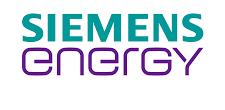
Learn how to recognise when people are vulnerable
In July, we held the 6.6 Challenge, encouraging people to walk, run or cycle 6.6km everyday throughout July to raise awareness and support for the 6.6 million UK households who were in fuel poverty.

We want to say a big thank you to everyone who took part and showed incredible dedication every day!
If you missed out, there are plenty more ways to support National Energy Action and help fight fuel poverty. Find out more on fundraising for us here: www. nea.org.uk/support-us/fundraisefor-national-energy-action.


National Energy Action was recently chosen as charity of the year by Woman’s Weekly magazine. As part of their support, the magazine asked its readers to make much-needed items to help families stay a bit warmer this winter. The response has been incredible as we have now received 870 beautiful baby blankets, sleep suits and toys, which will be distributed at community events. A huge thank to the talented readers, some of whom are in their nineties.

Mary Bird from Woman’s Weekly said that projects like these are the reason she does her role.

At the end of June, we were thrilled to hear that our Fundraising and Partnerships team has been shortlisted for Fundraising Team of the Year at the Third Sector Awards 2023. In August, the team attended an event with other finalists where we connected with other charities doing fantastic work. Later in September, we’ll be heading to London for the ceremony where we’ll find out the outcome. Whatever happens, we’re delighted and want to thank everyone for their support
Thank you to our 18 fabulous fundraisers who ran the Great North Run for us on Saturday 10 September, along with 60,000 others. We were joined by runners from Baker Hughes, Siemens Energy and Agility Eco who took on the epic 13.1 miles from Newcastle city centre to South Shields.

After completing the challenge, we celebrated their achievements at our stand in the charity village. We want to say a big thank you to all who took part, as well as our cheer team who volunteered their time to support the runners.
● If you would like to be updated next time we have spaces, please email Alice to secure your place: alice.dalgleish@nea.org.uk

Twitter/X and Threads: @NEA_UKCharity
Instagram: www.instagram.com/nea_ukcharity

Linked In: www.linkedin.com/company/national-energy-action

Facebook: www.facebook.com/nationalenergyaction

National Energy Action, the fuel poverty charity, campaigns so everyone can afford to live in a warm and safe home. This is something denied to millions because of poor housing, low incomes, and high bills.

Working across England, Wales and Northern Ireland, everything we do aims to improve the lives of people in fuel poverty. We directly support people with energy and income maximisation advice and we advocate on issues including improving the energy efficiency of our homes.
We do not work alone. Partnerships and collaboration have been at the heart of NEA for over 40 years, helping us drive better health and wellbeing outcomes for people struggling to heat their homes.
Email: focus@nea.org.uk Web: www.nea.org.uk
NEA is an independent charity, Registration No. 290511. Company limited by guarantee. Registered in England, No. 1853927 Registered office: Level 6, West One, Forth Banks, Newcastle upon Tyne, NE1 3PA Tel: 0191 261 5677
Illustration: Indigo Design/ Shutterstock